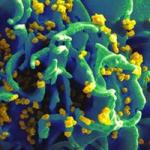
Research Topics
Human T lymphotropic virus type I (HTLV-I) is associated with a chronic progressive neurological disorder known as HTLV-I-associated myelopathy/tropical spastic paraparesis (HAM/TSP), a disease clinically similar to the chronic progressive form of multiple sclerosis (MS). Other viruses such as human herpes virus type 6 (HHV-6) have been associated with MS. An understanding of the pathogenesis of a neurologic disease with a known viral etiology will aid in defining similar mechanisms of pathogenesis in MS, a disease of unknown etiology.
Areas of research addressing these neurovirological and neuroimmunological issues include:
- The host immune response in HAM/TSP, particularly the role of CD8+, HTLV-I-Tax protein-specific cytotoxic T lymphocytes (CTL).
- The detection of these immunopathogenic CTL as well as the localization of human retroviral sequences in the central nervous system of HAM/TSP patients.
- Association of HHV-6 and MS.
- Development of immunotherapeutic strategies for the treatment of HAM/TSP, including a clinical trial of B-IFN therapy.
Major findings include:
- The demonstration of spontaneous proliferation of CD4+ and CD8+ cells from HAM/TSP patients ex vivo, including Tax-specific CD8+ CTL directly isolated from PBL of HAM/TSP patients.
- The quantitation of HTLV-I DNA in PBL of HAM/TSP patients by real-time Taqman PCR.
- Identification of altered peptide ligands that have been shown to interfere specifically with antigen-specific CTL clones.
- Association of HHV-6 and MS based on increased IgM response to HHV-6 early antigen, detection of HHV-6 DNA in sera from MS patients, and the observation of an increased proliferative response to the HHV-6A variant in MS patients. Collectively, these results continue to define the role of human viruses in chronic progressive neurologic disease.
Biography
Selected Publications
- Enose-Akahata Y, Wang L, Almsned F, Johnson KR, Mina Y, Ohayon J, Wang XW, Jacobson S. The repertoire of CSF antiviral antibodies in patients with neuroinflammatory diseases. Sci Adv. 2023;9(1):eabq6978.
- Monaco MCG, Soldan SS, Su C, Clauze A, Cooper JF, Patel RJ, Lu F, Hughes RJ, Messick TE, Andrada FC, Ohayon J, Lieberman PM, Jacobson S. EBNA1 Inhibitors Block Proliferation of Spontaneous Lymphoblastoid Cell Lines From Patients With Multiple Sclerosis and Healthy Controls. Neurol Neuroimmunol Neuroinflamm. 2023;10(5).
- Allnutt MA, Johnson K, Bennett DA, Connor SM, Troncoso JC, Pletnikova O, Albert MS, Resnick SM, Scholz SW, De Jager PL, Jacobson S. Human Herpesvirus 6 Detection in Alzheimer's Disease Cases and Controls across Multiple Cohorts. Neuron. 2020;105(6):1027-1035.e2.
- Enose-Akahata Y, Ngouth N, Ohayon J, Mandel M, Chavin J, Turner TJ, Jacobson S. Effect of Teriflunomide on Cells From Patients With Human T-cell Lymphotropic Virus Type 1-Associated Neurologic Disease. Neurol Neuroimmunol Neuroinflamm. 2021;8(3).
- Nozuma S, Enose-Akahata Y, Johnson KR, Monaco MC, Ngouth N, Elkahloun A, Ohayon J, Zhu J, Jacobson S. Immunopathogenic CSF TCR repertoire signatures in virus-associated neurologic disease. JCI Insight. 2021;6(4).
Related Scientific Focus Areas




Microbiology and Infectious Diseases
View additional Principal Investigators in Microbiology and Infectious Diseases
This page was last updated on Tuesday, August 29, 2023